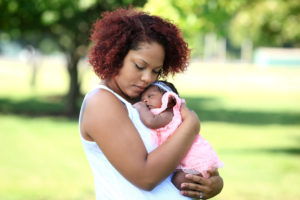Tips for New Parents
So, you’re a new parent! Things are changing quickly. There’s a lot to learn and things to sort out but before that.
Help with a crying baby
Babies cry as a way to communicate that they want or need something.
Why are both parents important?
Support your kids and be involved in their lives.
Tips for New Parents
So, you’re a new parent! Things are changing quickly. There’s a lot to learn and things to sort out but before that. Pop Quiz! According to research results, what is the one thing that help make your relationship with your significant other/partner stronger and help you bond with your baby?
Answer: Diapering. That’s right, changing diapers. Now you know.
It’s true. Being a first-time parent can be hard, and there’s no handbook or manual to give you all the answers; but, there are ways to help you be more prepared. Here are 11 things that help you as you begin your journey through parenthood.
Spend Time with Your Baby
 It may sound simple but spending time with your baby might be the most important thing you can do for your newborn. Every minute you spend with your little one is valuable. Your baby will learn from you and feel emotionally secure. Bonding takes time, so be patient. Allow yourself and your baby time to get to know each other. After all, this is a first for both of you—your first time being a parent; your baby’s first time being a human being. Be gentle and kind to each other.
It may sound simple but spending time with your baby might be the most important thing you can do for your newborn. Every minute you spend with your little one is valuable. Your baby will learn from you and feel emotionally secure. Bonding takes time, so be patient. Allow yourself and your baby time to get to know each other. After all, this is a first for both of you—your first time being a parent; your baby’s first time being a human being. Be gentle and kind to each other.Be Patient with Your Baby
If you find yourself losing your patience or feeling frustrated, place your baby in a safe area (crib or playpen) and take a few minutes. Leave the room, take as much time as you need to clear your mind, take some deep breathes, and try to relax. If you get extremely angry, it is important that you don’t shake your baby. It is very important to not shake a baby as it can cause permanent brain damage and, in certain cases, cause death. This is very important to remember because just a couple of seconds of shaking can be enough to damage your baby for life. If you’re about to reach a breaking point due to endless crying, just safely place your baby in his/her crib and walk away until you are calm and ready to try again.
Important note: Your baby will sense your emotions. If you are irritated, your baby will probably cry more. It’s difficult to be calm when you are sleep deprived, but remember if you are calm, your baby will be too!
Make Eye Contact
It’s a known fact that babies look at people’s faces when they are interacting. Recently, studies have shown that infants look straight into the eyes. It’s important to note that they can only see clearly up to a foot in front of them- so, stay close, smile, and look back at them in their eyes.
Repeat sounds. Repeatedly.
Repeat words that are easy to say: Ma-ma, Pa-pa, ba-ba, and so forth. These words are usually the first words that babies say all around the world. The simplicity of speaking these words helps babies receive quick language control and feedback from their surroundings. To help their learning and bonding, repeat the sounds they make back to them. Before you know it, you’ll both have your own tune.
Infants love motion
Babies love motion. Whether it is being held, lightly bounced, jiggled, or jostled, infants just can’t get enough of it. If you’re wondering why, movement helps the baby’s brain development, getting a sense of balance, and being soothed. Be sure to try different things with your little one: hold, sway, bounce, and cuddle. Take the time to learn what your little one likes and continue to use that motion.
All Hands on Deck: Change the Diaper!
All you may recall from the pop quiz at the introduction, research has shown that non-birth parents who change their baby’s diapers have a better, stronger, and long-lasting relationship with their partner and more bonding time with your baby. So, if you want to earn major points with your partner, get all hands on deck in changing your little one’s diaper.
Arrange for Parent Time
Bonding for partners takes time. Baby’s bond with the birth parent is easy; after all, they carried the baby for 9 months and are able to feed the baby whenever they are hungry. So, any time you have to be alone with the baby is an opportunity for bonding. Make time where you can spend time with your child without the birth parent or others. Take this time to bond with your child by engaging with your baby by talking, reading, and singing to them. Don’t forget movement!
Together Everyone Achieves More: Be your baby’s favorite TEAM
Being a non-birth parent doesn’t mean you have to do everything by yourself. On the flip side, being a partner doesn’t mean you let the birth parent do everything by themselves either. It doesn’t matter if you are with a partner or are co-parenting in separate houses, do your best to split up duties, and communicate what you expect to help raise your child together. Working as a team is the best way to manage the ever-changing demands of raising a child. Be sure to keep a clear line of communication between your partner and yourself. There are a lot of things as a parent that pop up that you don’t plan for, as long as you can talk to and understand each other, you can solve any problem that comes your way.
Keep Your Word
It’s a tale as old as time. Keeping your promises is the center of trust and security. Your partner and child will look to you to keep your promises. Faltering on your promises is the fastest way to create insecurities and distrust in your relationships. It’s important to remember to only make promises you can keep.
Give Feedback
Whether your baby cries, looks at you, reaches for you, any little gesture your infant makes should be recognized by you. Note: Your baby is learning the world around them. Show your baby appreciation by responding back accordingly. Time and time again, research has shown that being responsive to an infant helps their brain development, in helping them learn faster. The more you respond to your child, the more likely your child will continue to communicate and enhance their language and motor skills.
Love, Love, Love
Your child will look to both you and your partner for love. Feel free to show your child love every chance you get—start at birth and continue to throughout their lifetime. As time goes by and your bond grows stronger, you’ll find your love for your child will continue to grow. Enjoy the feeling and embrace the moment. There’s nothing more beautiful in life than the love that family has for one another.
Help with a crying baby
1. Create a checklist of possible reasons why your baby is crying. Here’s a list of common list of questions to ask in figure out what may be troubling your baby:
 Is the baby hungry?
Is the baby hungry?- Are the baby’s clothes too tight—rubbing against their skin?
- Is the baby’s diaper on right—Is it pinching skin?
- Does the baby need a diaper change?
- Does the baby have a diaper rash?
- Does the baby need to burp?
- Does the baby need to be held?
- Is the baby tired?
- Is the baby frustrated?
- Is the baby too hot or too cold?
- Is the baby gassy or constipated? – Very common.
- Is the environment too noisy or too quiet?
2. Go down the list and eliminate reasons you have addressed. (Easy enough)
3. Look for other possible reasons why baby might be crying.
 The baby may be crying over the most random thing imaginable—their toe may be caught in between the blanket or their teddy bear is pushing up against their side. Look to see what the reason may be. Don’t forget, if you suspect that your child is ill, call your doctor.
The baby may be crying over the most random thing imaginable—their toe may be caught in between the blanket or their teddy bear is pushing up against their side. Look to see what the reason may be. Don’t forget, if you suspect that your child is ill, call your doctor.
4. Try new things
 The same answer to an old problem might not always work. Try new approaches in attempting to address your baby’s crying.
The same answer to an old problem might not always work. Try new approaches in attempting to address your baby’s crying.
- Use a bouncy seat
- Walk baby around the house or neighborhood
- Use an Infant swing
- Create a distraction
- Take a ride in the car
- Do some bicycle legs
- Create white noise using cell phone apps
- Apply tummy pressure
- Use a front pack (sling)
- Rock The Baby Back and Forth
- Massage The Baby
- Use the Stroller (or jogger)
- Call a friend or family member to help
Did you know
Babies can sense your emotions! If you are frustrated, your baby knows and will feed on your frustrations. Every parent gets frustrated, but sometimes reminding ourselves that our baby is feeling our feelings, helps calm us down.
Sometimes no matter what you do, the baby will refuse to stop crying. In these situations, it is important to remain in control. If you find yourself ready to blow a fuse, safely put your baby in his crib and steer clear of your baby. Leave the room, take some time to clear your mind, take some deep breathes and try to relax yourself. If you get extremely irritated or agitated, it is important that you don’t shake your baby. Shaking a baby can cause permanent brain damage and, in certain cases, cause death. If you’re about to reach a breaking point due to endless crying, just safely place your baby in his crib and walk away until you are calm and ready to try again.
Why are parents important?
Support your kids and be involved in their lives.
Children who have both parents involved in their lives are more likely to have higher grades, good behavior, and are more likely to go on to college after high school.
Children are more likely to have better communication skills and be more confident in social situations when they have emotionally supportive parents.
If you are monitoring your teens’ activities, they are less likely to smoke, drink, and use drugs.

About Fresno EOC WIC
Contact & Locations
Income Guidelines
FAQ
Jobs with Fresno EOC
Additional Services
New Parents
Club WIC- Kids Club
Baby Showers
Family Resources

